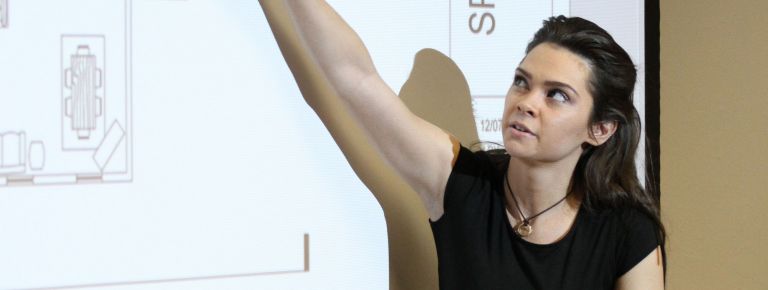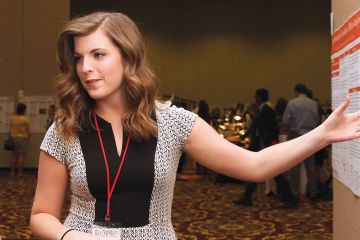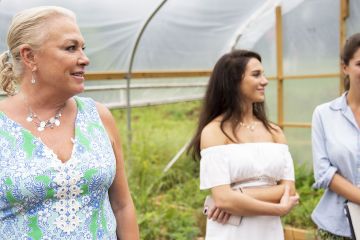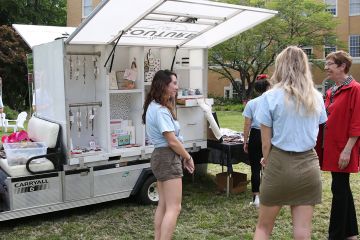A Partnership from the Ground Up
There was nothing theoretical about this assignment.
The project overview simply said “A Residence for Farmers,” with a brief project statement and listing of objectives.
The students, upperclassmen in Lilia Gomez-Lanier’s Advanced Residential Methods course, were to create plans and modifications for the homes of three Georgia farmers with disabilities.
Only these farmers were not fictitious clients of some imaginary design firm.
They were men like Jack Spears, a cattle farmer in Mansfield who has a spinal cord injury; Alan Koehn, also a cattle farmer in nearby Bowersville who has been diagnosed with Parkinson’s disease; and Tim Anderson, a 20-year veteran of the military who primarily uses a wheelchair due to a leg amputation.
All three men participate in the Farm Again’s AgraAbility project managed in part by the Institute on Human Development and Disability within FACS.
All three farmers currently have difficulty accessing every area of their home or performing basic tasks due to their disability.
“The farmer project was real and tangible,” said Tayler Sa’enz, a furnishings and interiors student who graduated in May. “It was the first time we would have our hand in a real life client and family.”
The project began with a tour of the farmers’ homes to evaluate the conditions for compliance with the Americans with Disabilities Act and Georgia Disability Code requirements. Students also collected measurements, took photos and conducted interviews with the farmers and their families.
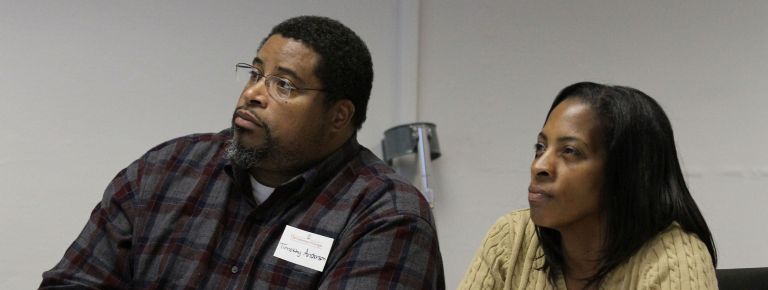
Eventually, the students paired up and were assigned to work on one of the three farmers’ homes, all tasked with creating ADA-compliant plans for modifications.
Sa’enz and classmate Elizabeth Lewis were assigned the Spears’ home.
“As we began to work, our idea was to create practical solutions,” Sa’enz said. “Coming from a farming family, I knew that practicality is a huge part of the lifestyle, so we wanted to give them a design that was feasible and aesthetically pleasing as well.”
Several weeks of work culminated at the end of the semester when the three farmers and their families were invited to see a presentation of the students’ work at IHDD. The students presented their plans in attractive books and poster boards to the families after walking through a visual representation of the changes on a projector.
“I was very impressed with the talent and professionalism of the students throughout the process,” said Becky Brightwell, associate director of IHDD. “They came up with creative solutions that can improve the quality of life for these farm families.”
Anderson, a veteran and newcomer to farming, attended the presentation with his wife, Lasandra (pictured below). The couple saw two separate presentations from FACS students and were impressed with both.
“My wife and I thought the students did an excellent job,” Tim said. “All of the ideas would be a wonderful addition to our home. We were truly grateful that our home could be used as a model for their project of amazing ideas.”
For Sa’enz, the project proved eye-opening.
“This project was rewarding and humbling,” she said. “The built environment is fundamental in all cultures so it’s necessary that people of all needs can use and have a space to call home. I gained a lot of respect for accessible design after this project.”
